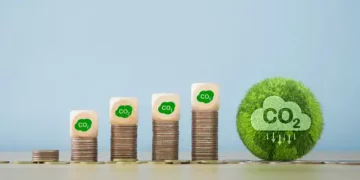Recent polls indicate a significant portion of the American public places a higher priority on environmental protection over economic growth. According to Gallup’s early 2023 survey, 52% of Americans favor environmental protection compared to 42% who prioritize economic growth. Furthermore, 56% believe the government’s efforts in environmental protection are insufficient.
Pew Research Center’s survey from mid-2023 reveals that 74% of Americans support international climate change mitigation efforts, and a clear majority advocate for the development of alternative energy sources over fossil fuels. The support extends to specific policy measures, including carbon-absorbing tree planting initiatives (89%), and requiring the sealing of methane leaks in oil and gas operations (85%). Tax incentives for carbon capture technologies and carbon emission taxes for corporations also received substantial support.
Despite this, there is resistance to completely banning fossil fuels and the internal combustion engine. Political party affiliation appears to influence opinions on energy sources, with Republicans generally more favorable towards fossil fuels and Democrats advocating for renewables. Additionally, younger Americans exhibit heightened environmental concerns compared to older demographics, with 50% of 18–29-year-olds surveyed by Harvard’s Institute of Politics favoring proactive governmental climate action.
Americans recognize environmental risks but exhibit skepticism towards policies mandating public behavioral changes. The discourse suggests a preference for regulatory rules that incentivize rather than penalize, advocating for positive reinforcement over negative consequences.
The narrative of environmental damage as an existential threat is juxtaposed with immediate dangers such as poverty and violence, suggesting a need for balanced perspective in addressing diverse societal challenges.
Notwithstanding broad public support for environmental safeguards, Republican backing is generally less than that of Democrats. Political system elements like gerrymandering and the Senate filibuster can amplify this disparity, requiring significant public opinion majorities to enact policy changes.
Historically, environmental protection has been seen as a luxury by some, juxtaposed against wealth accumulation goals. However, the recognition of pollution’s impact on public health has shifted the environmental conversation from aesthetics to health, with technological advancements offering solutions that combine cost-effectiveness with environmental benefits.
Stay updated with supply chain news at The Supply Chain Report. Learn more about international trade at ADAMftd.com with free tools.
#EnvironmentalProtection #PublicOpinion #ClimateChange #CarbonCapture #MethaneLeaks #AlternativeEnergy #RenewableEnergy #EnvironmentalHealth #Sustainability #Pollution #EnergyPolicy #ClimateAction #EnvironmentalAdvocacy #GreenPolicies #ClimateMitigation #CarbonTax #ClimateConcerns #EnvironmentalRegulation #FossilFuels #PublicBehaviorChange #PositiveReinforcement #EnvironmentalImpact #Gerrymandering #EnvironmentalJustice #EnergyIncentives #YouthClimateAction















